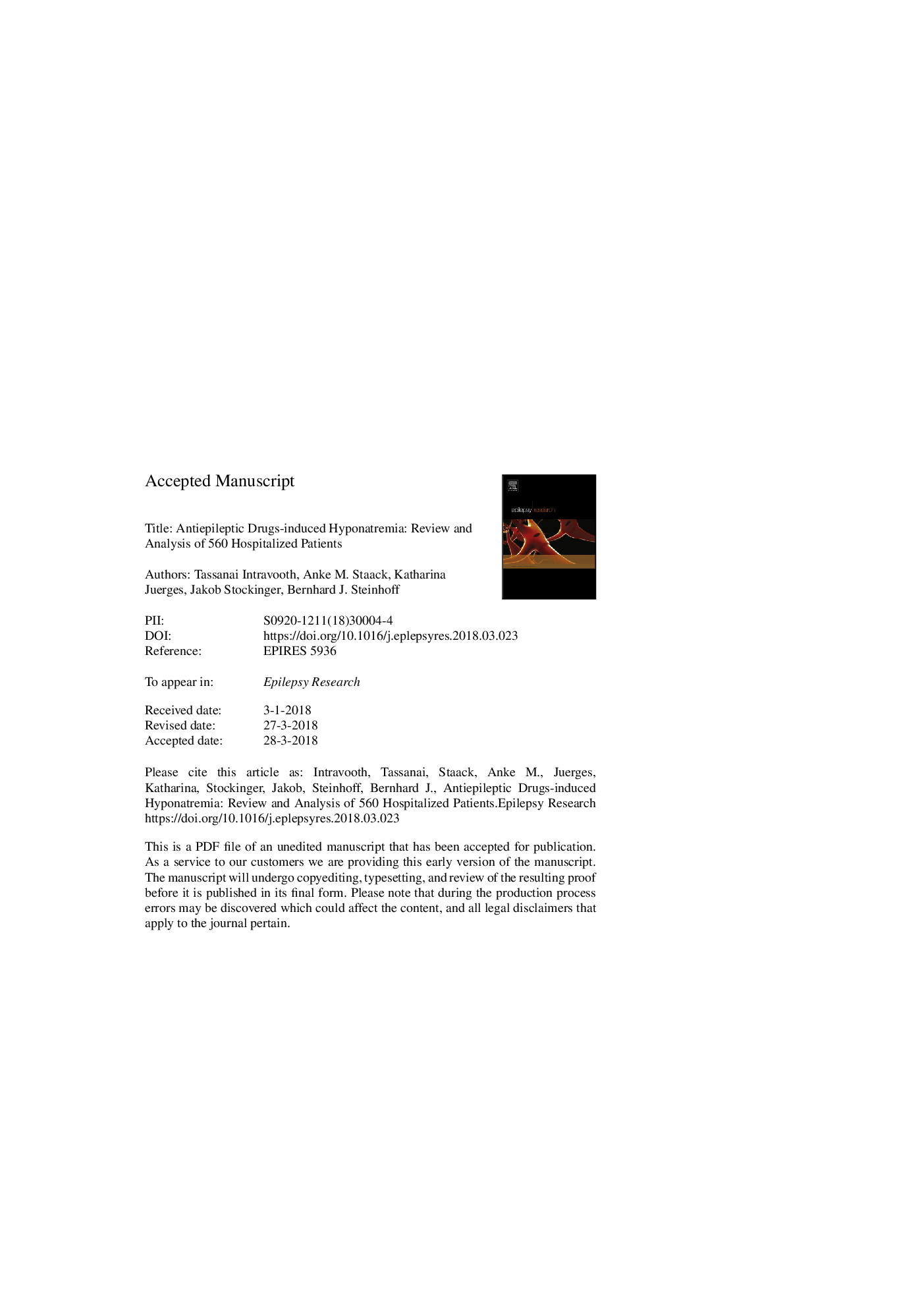| Article ID | Journal | Published Year | Pages | File Type |
|---|---|---|---|---|
| 8684101 | Epilepsy Research | 2018 | 18 Pages |
Abstract
Only CBZ, OXC and ESL were associated with hyponatremia. The incidence of hyponatremia induced by ESL was not statistically different from that induced by OXC (43% of patients with OXC and 33% with ESL, pâ¯>â¯0.05). Both were associated with hyponatremia more often than CBZ (16%). OXC-induced hyponatremia was dose-related, ESL-induced hyponatremia was not. Furthermore, both OXC- and ESL-induced hyponatremia occurred particularly often in elderly epilepsy patients. Thus, for elderly patients, both OXC and ESL should be considered with caution.
Keywords
AEDLTGPRMCZPPGBZonisamideVPALEVvigabatrinVGBlacosamideESLTPMZnSSTMLCMPHTGBPOXCRUFCbzEslicarbazepine acetatestandard deviationOxcarbazepineILAECLBElderly patientsTopiramateantiepileptic drugsantiepileptic drugperRufinamideSodiumPhenobarbitalPhenytoinLamotriginelevetiracetamInternational League against EpilepsyHyponatremiaValproic acidPerampanelPregabalinprimidonequartilecarbamazepineClobazamClonazepamGabapentin
Related Topics
Life Sciences
Neuroscience
Neurology
Authors
Tassanai Intravooth, Anke M. Staack, Katharina Juerges, Jakob Stockinger, Bernhard J. Steinhoff,
